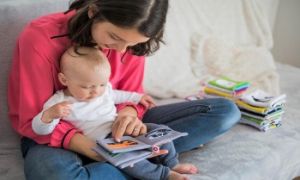

In the rhythm of early childhood education, weekly programs often become the heartbeat of practice—a steady pulse of planned experiences, observations, and reflections. But what transforms a weekly plan from “meeting expectations” to “exceeding standards”? The answer lies not in the template, but in the texture of the program itself.
Here's a breakdown of Exceeding Theme 3: Meaningful Engagement with Families and/or the Community across Quality Areas 1 to 7, tailored to your advocacy lens. This theme is all about co-constructing practice with families and communities—ensuring their voices shape decisions, environments, and outcomes.
Here's a comprehensive breakdown of Exceeding Theme 2:Practice is Informed by Critical Reflection across all quality areas 1 to 7 of the National Quality Standard (NQS). This theme emphasizes how services use deep, ongoing reflection to inform and improve their practices—not just occasionally, but as a core part of their culture.
By embedding high-quality practices, services demonstrate an unwavering commitment to continuous improvement, educator collaboration, and responsive engagement with children, families, and communities. This introduction sets the foundation for exploring how Exceeding Theme 1 is applied across Quality Areas 1 to 7, shaping a truly exceptional early childhood environment.
 Here is the list of the EYLF Learning Outcomes that you can use as a guide or reference for your documentation and planning. The EYLF… Read More
Here is the list of the EYLF Learning Outcomes that you can use as a guide or reference for your documentation and planning. The EYLF… Read More
 The EYLF is a guide which consists of Principles, Practices and 5 main Learning Outcomes along with each of their sub outcomes, based on identity,… Read More
The EYLF is a guide which consists of Principles, Practices and 5 main Learning Outcomes along with each of their sub outcomes, based on identity,… Read More
 This is a guide on How to Write a Learning Story. It provides information on What Is A Learning Story, Writing A Learning Story, Sample… Read More
This is a guide on How to Write a Learning Story. It provides information on What Is A Learning Story, Writing A Learning Story, Sample… Read More
 One of the most important types of documentation methods that educators needs to be familiar with are “observations”. Observations are crucial for all early childhood… Read More
One of the most important types of documentation methods that educators needs to be familiar with are “observations”. Observations are crucial for all early childhood… Read More
 To support children achieve learning outcomes from the EYLF Framework, the following list gives educators examples of how to promote children's learning in each individual… Read More
To support children achieve learning outcomes from the EYLF Framework, the following list gives educators examples of how to promote children's learning in each individual… Read More
 Reflective practice is learning from everyday situations and issues and concerns that arise which form part of our daily routine while working in an early… Read More
Reflective practice is learning from everyday situations and issues and concerns that arise which form part of our daily routine while working in an early… Read More
 Within Australia, Programming and Planning is reflected and supported by the Early Years Learning Framework. Educators within early childhood settings, use the EYLF to guide… Read More
Within Australia, Programming and Planning is reflected and supported by the Early Years Learning Framework. Educators within early childhood settings, use the EYLF to guide… Read More
 When observing children, it's important that we use a range of different observation methods from running records, learning stories to photographs and work samples. Using… Read More
When observing children, it's important that we use a range of different observation methods from running records, learning stories to photographs and work samples. Using… Read More
 This is a guide for educators on what to observe under each sub learning outcome from the EYLF Framework, when a child is engaged in… Read More
This is a guide for educators on what to observe under each sub learning outcome from the EYLF Framework, when a child is engaged in… Read More
 The Early Years Learning Framework describes the curriculum as “all the interactions, experiences, activities, routines and events, planned and unplanned, that occur in an environment… Read More
The Early Years Learning Framework describes the curriculum as “all the interactions, experiences, activities, routines and events, planned and unplanned, that occur in an environment… Read More

The Early Years Learning Framework outlines a set of eight pedagogical practices for educators to...
See more...
The following article provides a variety of playdough recipes for different textures and experiences.
See more...
Writing a personal philosophy is a great way for others to read what your values...
See more...© 2009-2025 Aussie Childcare Network Pty Ltd. All Rights Reserved.

